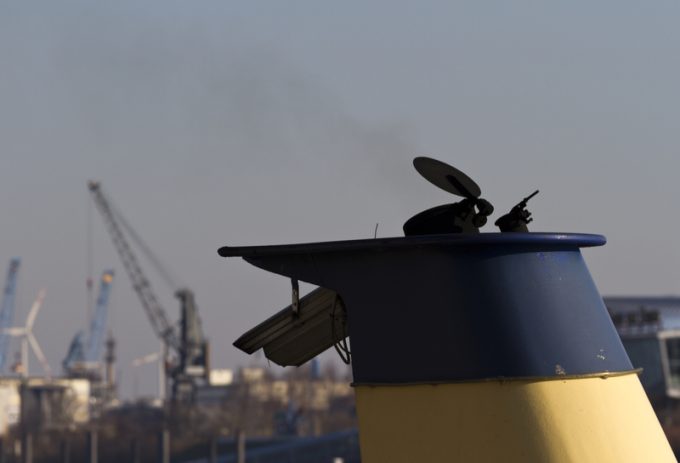Vessel pooling could halve costs of compliance with looming FuelEU regulation
The looming FuelEU Maritime regulation will pose significant challenges and extra costs for the shipping ...
TFII: SOLID AS USUALMAERSK: WEAKENINGF: FALLING OFF A CLIFFAAPL: 'BOTTLENECK IN MAINLAND CHINA'AAPL: CHINA TRENDSDHL: GROWTH CAPEXR: ANOTHER SOLID DELIVERYMFT: HERE COMES THE FALLDSV: LOOK AT SCHENKER PERFORMANCEUPS: A WAVE OF DOWNGRADES DSV: BARGAIN BINKNX: EARNINGS OUTODFL: RISING AND FALLING AND THEN RISING
TFII: SOLID AS USUALMAERSK: WEAKENINGF: FALLING OFF A CLIFFAAPL: 'BOTTLENECK IN MAINLAND CHINA'AAPL: CHINA TRENDSDHL: GROWTH CAPEXR: ANOTHER SOLID DELIVERYMFT: HERE COMES THE FALLDSV: LOOK AT SCHENKER PERFORMANCEUPS: A WAVE OF DOWNGRADES DSV: BARGAIN BINKNX: EARNINGS OUTODFL: RISING AND FALLING AND THEN RISING

IMO member states have been urged by environmental campaigners to reject shipping emission proposals from an IMO intersessional working group.
After meeting this week the group’s Reducing Greenhouse Gas Emissions from Ships (J/5) draft text will be forwarded to the IMO’s Marine Environment Protection Committee (MEPC), scheduled for 16-20 November, where parties are expected to adopt the recommendations.
However, campaigners argued that the J/5 proposals violate the IMO’s own initial greenhouse gas strategy in three key ways: that the industry will fail to reduce emissions before 2023; will not peak emissions as soon as possible; and will not set ship CO2 emissions on a pathway consistent with Paris Agreement goals.
John Maggs, president of the Clean Shipping Coalition, which has observer status at the talks, said: “We urge all countries to reconsider their support for the J/5 decision and reject it, unless it can be fundamentally strengthened,”
Pacific Environment, World Wildlife Fund and the Clean Shipping Coalition said the J/5 draft failed to properly address ship emissions’ contribution to climate change on the absence of carbon intensity targets and a weakened Energy Efficiency of Existing Ships Index (EEXI).
“The proposal still contains no carbon intensity target and, somehow, reduces the stringency of the required EEXI for many ship types. (The EEXI requires ships to reduce their engine power to make them more efficient.)
“This means the proposal would, at best, now curb GHG by only 0.65% to 1.3% by 2030, compared with the business-as-usual pathway without IMO regulation. This was 15% above the industry’s 2008 baseline,” the groups said.
Secondly, they argue that J/5 contains loopholes, including allowing non-compliant ships to continue “underperforming for three consecutive years before they even have to file a plan to make improvements, and can easily game underperformance indefinitely by ensuring one compliant year every three years”.
And thirdly they point out that there are no enforcement measures: “All clauses that would create consequences for non-compliance – such as increased EEXI stringency or ultimately revoking a ship’s statement of compliance – have been removed.”
Faig Abbasov, shipping programme director at European environmental lobby group Transport & Environment, said EU countries determined to meet their Paris Agreement commitments should focus their efforts on enforcing EU shipping emission regulations.
“Governments have ridden roughshod over the Paris Agreement by agreeing a measure that will see ship emissions grow for decades to come.
“The UN maritime agency again showed the world it can only deliver cosmetic changes.
“EU countries should work through the European Green Deal to fill the gap left by the IMO,” he said.
Comment on this article